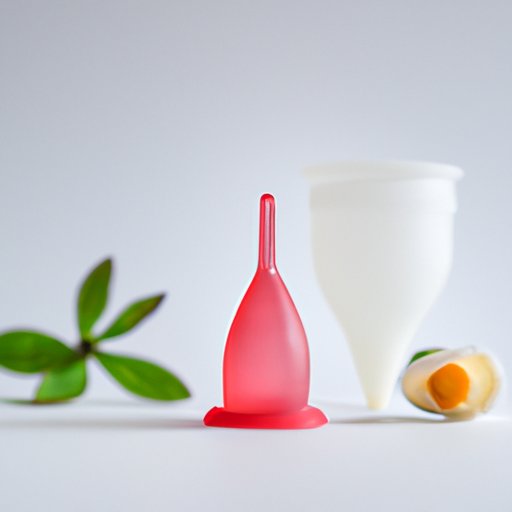
I. Introduction
Many women experience inconvenience or discomfort during their period, and sometimes it may be necessary to delay it due to travel plans, special events, or medical reasons. Fortunately, there are several methods to delay your period, each with varying degrees of effectiveness. In this article, we will explore some of the most popular and safe methods to delay your period.
II. Hormonal Birth Control
Hormonal birth control is a method of contraception that uses a combination of estrogen and progestin hormones to prevent ovulation and thicken cervical mucus. It can be taken in the form of pills, patches, or rings. By continuously taking hormonal birth control, one can delay their period for up to a few months.
The effectiveness of hormonal birth control for delaying periods depends on the type used – for example, pills with high doses of hormones may be more effective than those with low doses. However, some women may experience breakthrough bleeding or spotting, especially during the first few months of continuous use. Hormonal birth control should only be used under the guidance of a healthcare provider.
III. Norethisterone
Norethisterone is a synthetic progestin hormone that can be used to delay periods for a specific amount of time. It works by mimicking the natural effects of progesterone, which helps regulate the menstrual cycle. Norethisterone needs to be taken 3 times a day, starting 3-4 days before the expected period, and for as long as necessary (up to 17 days).
While norethisterone is generally safe, it may cause side effects such as headache, nausea, and breast tenderness. It is not recommended for women who are pregnant, breastfeeding, or have a history of blood clots.
IV. Menstrual Cups
Menstrual cups are reusable silicone or rubber cups that are inserted into the vagina to collect menstrual blood. They are considered a safe and eco-friendly alternative to traditional tampons and pads. Some women believe that using a menstrual cup can help decrease menstrual flow and potentially delay periods, although there is no scientific evidence to support this claim.
When using menstrual cups, it is important to follow proper hygiene practices to avoid infections. Cups should be emptied and rinsed at least twice a day and boiled in water between periods.
V. Herbal Remedies
Some herbal remedies, such as ginger, parsley, and turmeric, are believed to have properties that can delay periods. Ginger, for example, is thought to help relax the uterus and delay contractions. Parsley is said to stimulate estrogen production, which can regulate the menstrual cycle. Turmeric, on the other hand, is claimed to have anti-inflammatory properties that can help reduce menstrual flow.
While herbal remedies are generally safe, some may interact with prescription medications or have potential contraindications. It is recommended to consult with a healthcare provider before using them to delay periods.
VI. Drinking Water
Drinking water is believed to help delay periods by decreasing the thickness of the uterine lining and reducing the intensity of menstrual contractions. However, there is limited scientific evidence to support this claim.
Nevertheless, drinking water has many health benefits and is essential for staying hydrated. It is recommended to drink at least 8-10 glasses of water a day, regardless of whether or not you are trying to delay your period.
VII. Changing Diet
Changing one’s diet can also affect menstrual cycles. For example, certain foods such as high-fat dairy products, red meat, and caffeine can increase estrogen levels and make periods heavier. On the other hand, foods rich in iron and vitamin B12, such as leafy greens, fish, and eggs, may help reduce menstrual flow and delay periods.
While making dietary changes can have health benefits, it is important to consult with a healthcare provider before making any significant changes to your diet.
VIII. Physical Activity
Physical activity can help delay periods by reducing stress levels and increasing blood flow to other parts of the body. Yoga, in particular, has been found to be effective in regulating menstrual cycles and reducing menstrual pain.
However, it is important to listen to your body and not engage in strenuous exercise if you are experiencing heavy bleeding or severe menstrual cramps. Always consult with a healthcare provider before starting a new exercise regimen.
IX. Conclusion
Delaying your period can be achieved through various methods, such as hormonal birth control, norethisterone, menstrual cups, herbal remedies, drinking water, changing diet, and physical activity. However, it is important to speak to a healthcare provider before trying any of these methods, as they may have potential risks or side effects. By having an open dialogue with your doctor, you can make an informed decision about the best method for you.
If you have any tips or experiences with delaying periods, we encourage you to share them in the comments section below.





